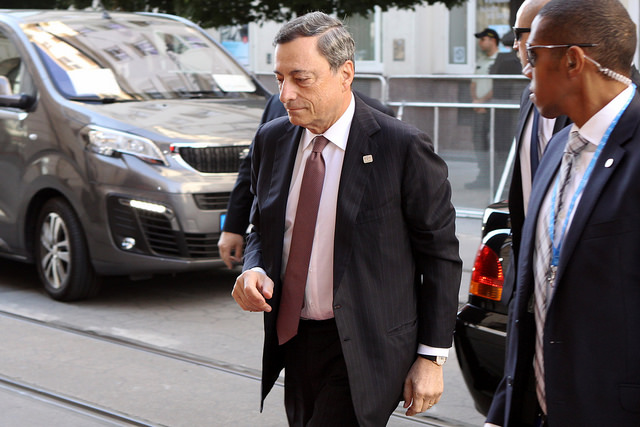The European Central Bank has taken action against a currency it cannot control. The rise and fall of Bitcoin bears valuable lessons for innovators and CEOs.
(This article was initially posted on salvadorbaille.com)
Since the inception of Bitcoin, a fervent choir of innovators and believers in an independent cryptocurrency, universal and free from the inference from the state, has flourished. Innovation enthusiast have developed bitcoin wallets and new business models. They have convinced big players to sell their goods on the internet priced in the new currency. The first financial derivatives on Bitcoin appeared already in 2013. The force of innovation seemed irresistible.
Then the states woke up. The Bitcoin facilitates anonymous transactions and neither the volume nor the value of bitcoins in the market are controllable by any central power. Suddenly, lawmakers understood how the bitcoin movement seriously could threat critical pillars of their financial policy, specially since 9/11 and the financial crises of 2008:
- Their ability to track money transactions to avoid terrorism and money laundering
- Their authority to control the money supply, and thus interest rates, inflation and economic recovery
On top of that, there is a huge geopolitical game going on, because a handful of Chinese companies have effectively assumed majority control of the Bitcoin network.
This could not be permitted, and the consequences have been brutal.
In July, the European Commission took care of the anonymity aspect. It launched a new regulatory proposal to implement a data base containing the real identities of bitcoin users as well as the adresses of the bitcoin virtual wallets.
The European Central Bank then addressed the money supply issue. In a letter dated 18.10.2016, the ECB urged the EU Commission to discourage the use of bitcoin as payment vehicle for any kind of goods and services. The reason? «The reliance of economic actors on virtual currency units could in principle affect the central banks’ control over the supply of money «. No more explanations required.
The story of Bitcoin is an excellent example of the two main perils that cause many innovations to fail despite being excellent ideas in the first place.
Peril number one is a vulnerable position crammed in a value chain dominated by hostile powerful players. When an innovation needs to take a place in an existing value chain to function, its fate will be in the hands of the bodies controlling it. A classic example is the rise and fall of MVNOs (Mobile Virtual Network Operators). In the 90s, regulatory authorities forced telecom operators to open their physical mobile network to new virtual players in order to promote competition and erode prices. It looked like these nimble players (like Chess or Teletopia in Norway) would feast at the expense of the old slow giants. It didn’t happen. Those new MVNOs ended up either being acquired or crushed under the price policies on network access prices executed by incumbents. Google and the other internet ecosystems are well aware of this pending danger and lobby relentlessly towards regulatory bodies in order to secure free access to the infrastructure of the internet.
Peril number two is regulation. Any good idea, even with disruptive potential, can be rapidly marginalized by the sheer power of legislation. Take eHealth for example. The digitalization of health services has the potential to be revolutionary and highly beneficial for the public. However, it is a recognized fact at European level that regulatory legacy has substantially slowed down its implementation pace.
Any innovator or CEO of a technology company should reflect seriously about these two perils before considering the launch of new products or services. No matter how good the idea may be and even if it may revolutionize the financial world.










It seems that the author has got the headline wrong, it should state: “The ECB just realized it got obsoleted by Bitcoin”. The Bitcoin technology is ‘out of the bottle’ and it can not be ‘un-invented’, the ECB could better embrace it and support all the new possibilities it enables in our society like; Security, Transparency, Resilience, own control of own finance/data, etc.
As the Bitcoin technology is not owned nor controlled by any single organisation nor country and that it is truly distributed globally among all the users in the world, there is no central organisation, like the EBC, that can stop it. Trying to stop the Bitcoin technology will only make it more resilient and distributed. The ECB will only harm the true economical development in their own jurisdiction, favoring other areas/countries that are more friendly to the Bitcoin technology.
What is Bitcoin?
“The Bitcoin blockchain is an immutable trustless registry of entries, hosted on an open distributed network of computers (called nodes). It is safer and cheaper than traditional centralized databases, is resilient to attacks, enhances transparency and accountability and puts people in control of their own financials and information”